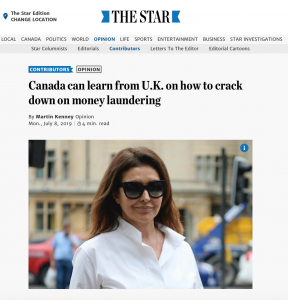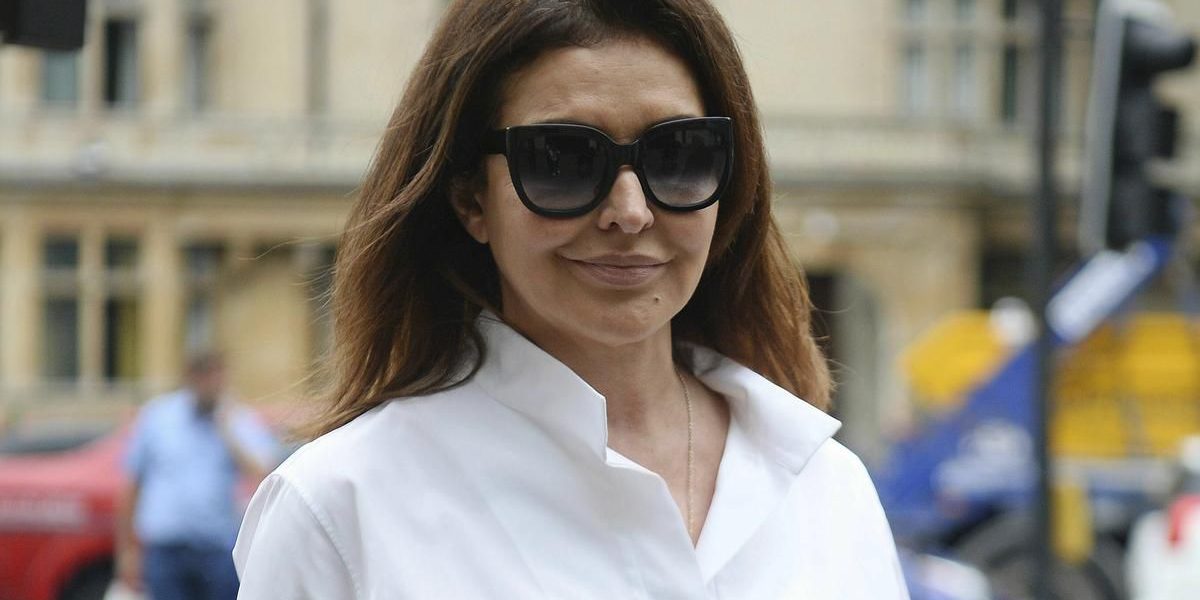The U.K.’s equivalent of the FBI, the National Crime Agency (NCA), has hit the international news headlines with a series of high-profile, corruption-linked asset seizures — deploying an extraordinary new weapon in the fight against corruption, styled “unexplained wealth orders” or UWOs.
The wife of an Azerbaijani banker (jailed in his own country for embezzlement) is currently trying to appeal a decision by the NCA to issue her with a UWO freezing over properties worth $36 million, including a $19 million home in fashionable Knightsbridge. After media organizations applied to the court, it was revealed that Zamira Hajiyeva had spent more than $26 million in luxury store Harrods over the course of a decade, including $50,000 on chocolates in a single day.
In another case reported in May, three London homes valued at more than $131 million were frozen after a foreign official (unnamed) was hit by a UWO. The properties were all held by offshore companies. Interim freezing orders have been added into the equation, meaning the properties cannot be sold or mortgaged while the investigation continues.
UWOs were introduced by the U.K. in early 2018 to help stem the huge sums of “dirty” money washing through London. They are targeted at foreign government officials and their families — “PEPs,” or politically exposed persons — from outside the European Economic Area (EEA). They are believed to have laundered funds through British property and banks and they require the individual to prove their wealth comes from a legitimate origin (if their income appears insufficient).
Following these cases, Andy Lewis, the NCA’s head of Criminal Asset Denial section, said UWOs were a “powerful tool in being able to investigate illicit finance flowing into the U.K. and discourage it happening in the first place.”
The U.K.’s UWO model should be copied and mirrored elsewhere, including in Canada. These are powerful tools in the fight against globalized fraud, corruption and money laundering. Any legislation designed to frustrate those who would use our property and financial systems as safe havens for dirty money stolen from their home nation should be welcomed.
Shifting the burden of proof to a suspect, once it is shown that there are highly suspicious circumstances about the origin of their wealth, enables law enforcement to attack the top echelons of criminality. It may not result in the perpetrators serving a jail sentence, but hitting them in the pocket book can render them fiscally impotent. Such legislation is described as being draconian. And it is.
The U.K. is awash with dubious money, originating for example from former Eastern Bloc oligarchs and African dictators, who know and appreciate that U.K. investments, particularly in London, are safe and likely to increase in value.
The problem of money laundering is endemic. Nowhere is safe. However, one would anticipate that polite and civilized Canada would be a difficult location to invest your ill-gotten gains. Alas — apparently not. In British Columbia, experts have estimated that dirty money bought over U.S. $5 billion in B.C. real estate in 2018.
The same experts have called for the province to consider “stronger oversight of money services businesses and the adoption of unexplained wealth orders, which permit law enforcement officials to seize suspicious assets when owners cannot sufficiently account for the sources of their money.”
The government of B.C. has since responded by announcing the establishment of a public inquiry into money laundering in the province’s economy to “get to the bottom” of how dirty money has seeped into the housing market, the luxury car market and casinos. B.C. Supreme Court Judge Austin F. Cullen has been placed in charge of the inquiry. The judge will have the power to compel witnesses to testify and to order disclosure.
Unsurprisingly, not all are in favour of UWOs. In Canada, Michael Vonn, policy director for the B.C. Civil Liberties Association, said: “I think it’s an incredibly troubling notion. With UWOs, anyone targeted by the government would be required to prove they bought their property using legitimate sources of income. The province wouldn’t need to show any link to criminal activity.”
In Australia where they already have UWOs, some critics have slammed them. Civil Liberties Australia director Rajan Venkataraman wrote: “The reversal of the presumption of innocence has been a hallmark of tyrannical regimes throughout history.”
Clearly civil rights advocates will have their reservations. But how else can we realistically combat this upper echelon of criminality, where cross-border money laundering and corruption investigations take years, and cost millions of dollars to conclude?
To the critics of UWOs, there is the ancient Roman law maxim: res ipsa loquitur, or “the thing speaks for itself.” If a retired PEP from the PRC had an official public salary of $50,000 per year, and entered public life as a person of modest means, it would be highly suspicious if they were found to own $200 million of office buildings and hotels in Vancouver. Reverse onuses of proof are not new: Canada’s Narcotic Control Act 1961 contained one for trafficking in narcotics. If you were caught with five kilos of cocaine it is reasonable for the law to presume that you are a drug trafficker.
It remains to be seen if the U.K.’s UWOs will prove viable. The early indications are that they will become a major tool in law enforcement’s tool box. Canada should be turning its attention to following suit, perhaps even improving upon their U.K. counterpart’s legislation.
Martin Kenney is managing partner of Martin Kenney & Co., Solicitors, a specialist investigative and asset recovery practice based in the British Virgin Islands. With thanks to Tony McClements, senior investigator at Martin Kenney & Co, for his assistance with this post.
This article originally appeared in The Toronto Star (8th July 2019)


